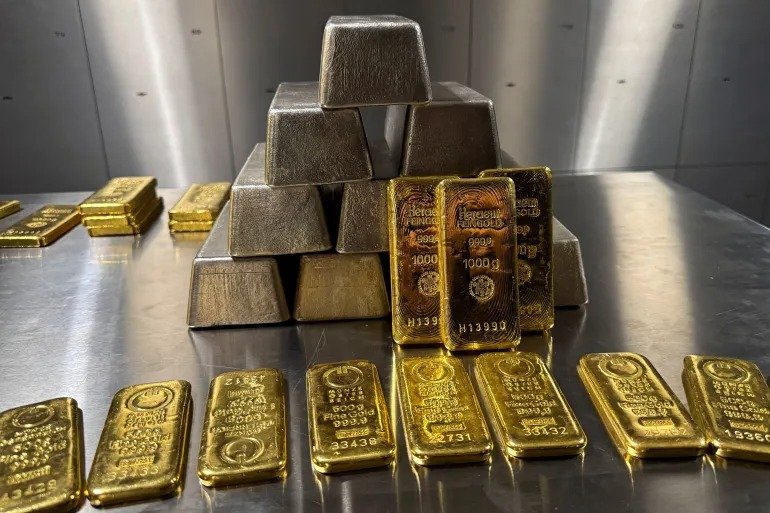Ghana’s central bank governor, Johnson Asiama, announced that the country has successfully rebuilt its foreign exchange reserves to cover the equivalent of four and a half months of imports, after a sharp decline during the economic crisis of 2022.
Speaking on the sidelines of the IMF and World Bank annual meetings in Washington, Asiama said that the establishment of a new state-owned gold trading agency in March played a pivotal role in this recovery.
The agency, known as GoldBoard, has generated around $8 billion by centralizing the purchase and export of gold, ensuring that foreign currency revenues are channeled back into the domestic banking system.
“We are running the agency as a revolving fund, and it has already made a significant impact in strengthening our reserves,” the governor stated.
Asiama added that the central bank continues to receive gold bars directly from major mining companies under existing agreements, further bolstering the country’s gold holdings.
This marks a major shift from the previous arrangement, where private companies dominated exports and much of the foreign exchange earnings did not flow through the local banking system.
In a related development, the governor revealed that Ghana plans to regulate the cryptocurrency sector before the end of this year through a draft law developed in collaboration with the IMF.
The proposed legislation, now before parliament, would grant the central bank authority to license and supervise virtual asset activities, following observations that part of remittance inflows had begun to move through stablecoins and informal channels.

